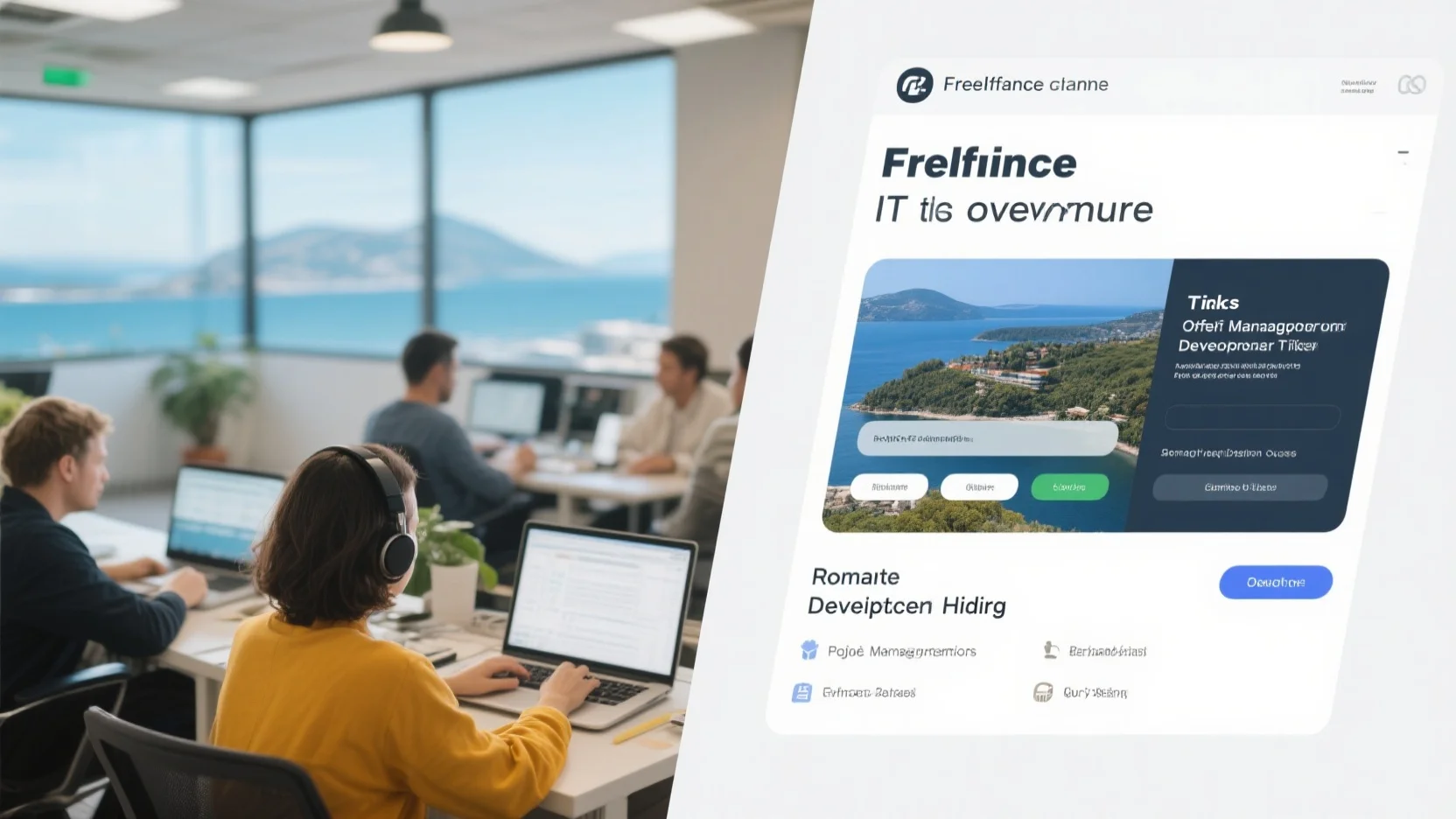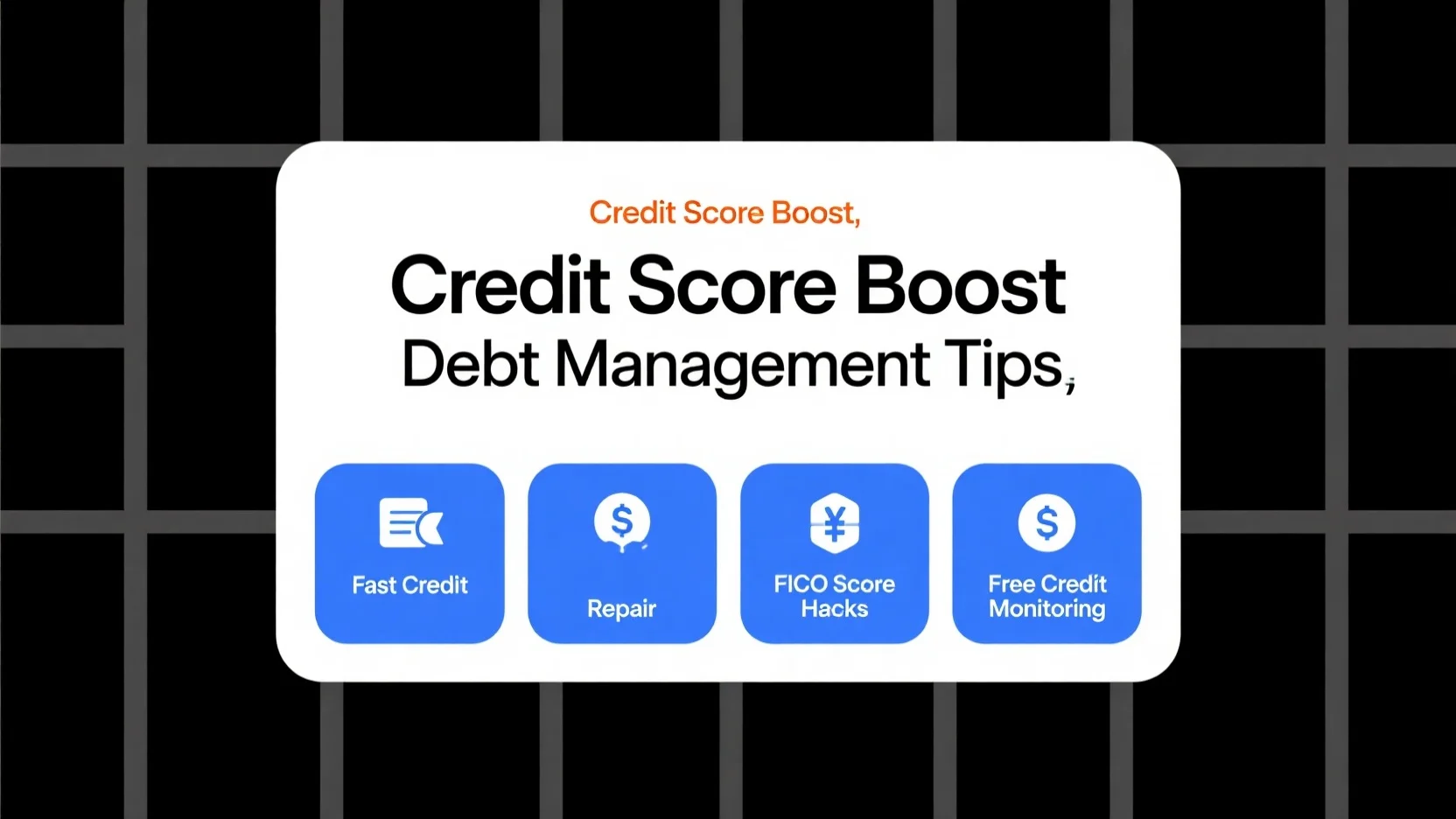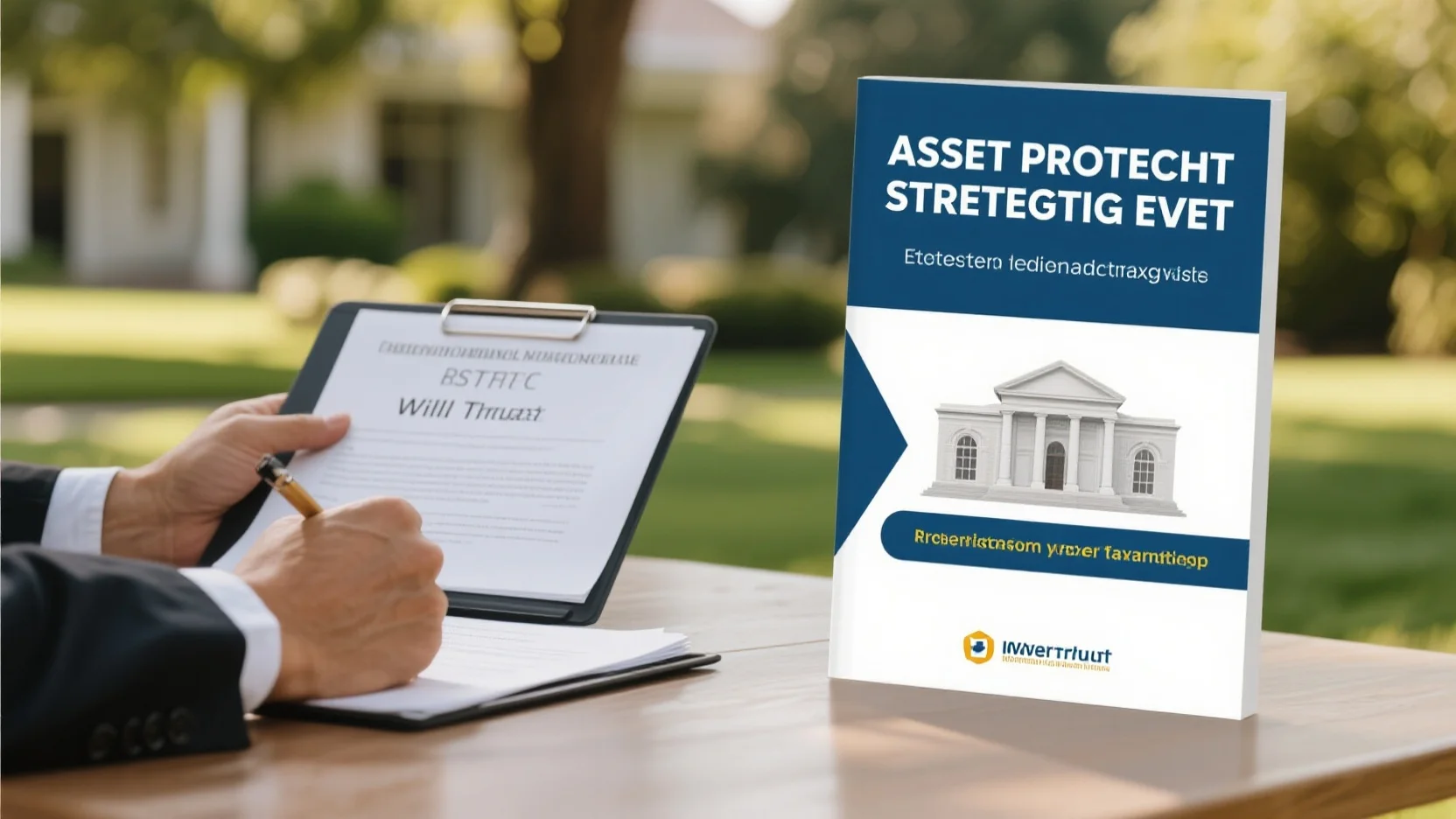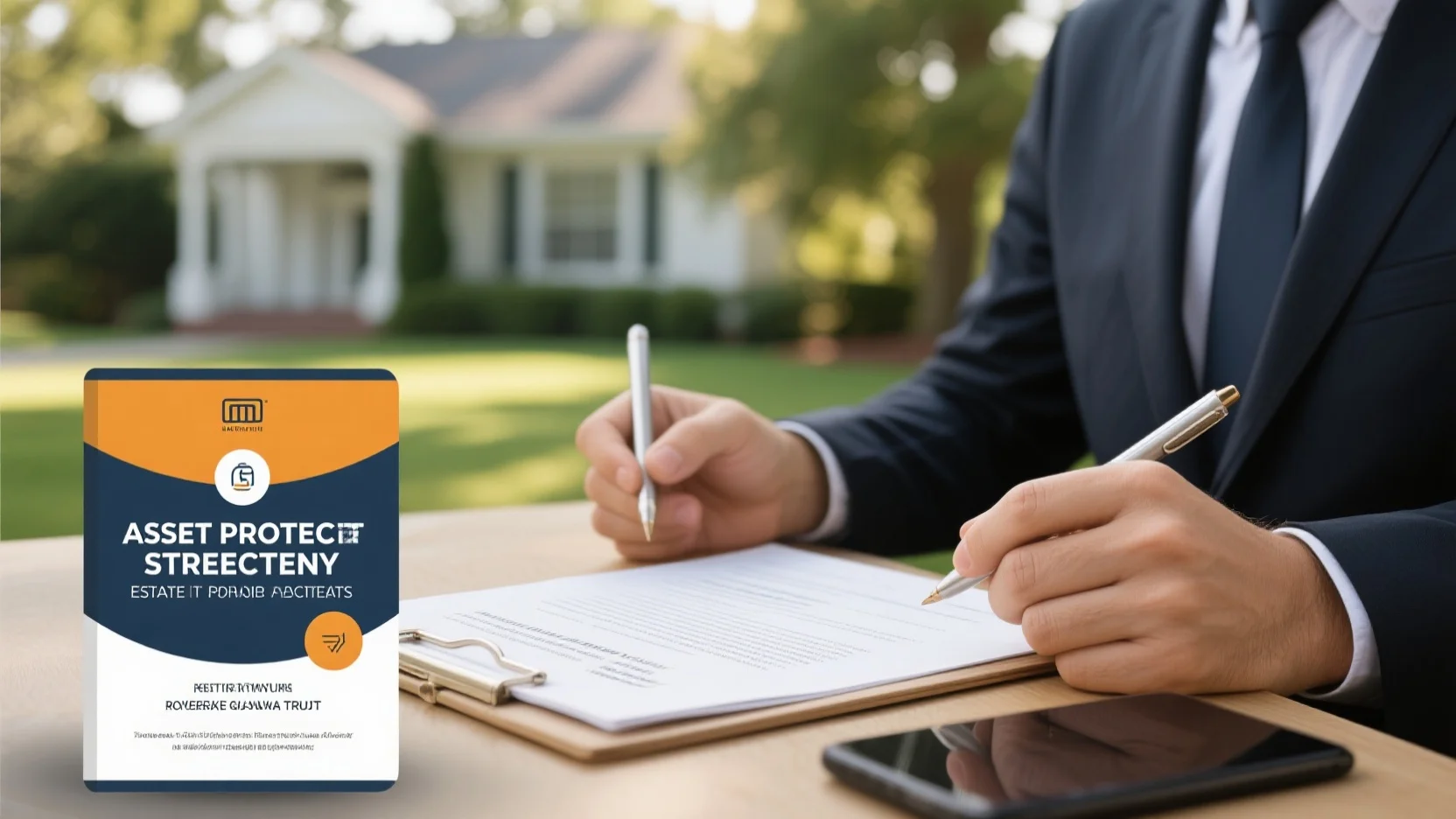Image Source: pexels
Think about leaving your family with legal problems or taxes. This can happen if you don’t plan early. Around 35% of U.S. adults have seen or know someone who faced family fights because there was no estate plan. In 2025, things like online accounts and new laws make having an Estate Planning Checklist: Protect Your Assets in 2025 even more important. Start now to protect what you own, keep your family safe, and stop future confusion.
Key Takeaways
- Everyone should have an estate plan, no matter their age or money. It helps your family and makes sure your wishes are done.
- Update your estate plan often, especially after big life changes. This keeps it useful and up-to-date.
- Pick people you trust for important jobs in your estate plan. They will handle your things and make sure your wishes are followed.
Understanding Estate Planning
What is Estate Planning?
Estate planning is a way to plan for the future. It’s more than just writing a will. It ensures my family is cared for and my wishes are followed. I can decide who gets my assets, avoid extra taxes, and prepare for times I can’t make decisions myself.
The main goals are to protect assets, lower taxes, and transfer property easily. It also helps skip probate, which takes time and money. For instance, a living trust can help avoid probate and make things simpler for my family. Planning ahead reduces fights among family members and gives them peace of mind.
Tip: Estate planning isn’t only for rich people. It’s for anyone who wants to protect their family and what they own.
Who Needs an Estate Plan?
Everyone should have an estate plan, no matter their age or wealth. Some think it’s only for older or rich people, but that’s not true. If I own a house, have savings, or care about my family, I need one. Without it, my family could face legal problems, lose money, and feel stressed.
Here’s why estate planning is important for everyone:
- It makes sure my assets go to the right people.
- It prevents family fights by giving clear instructions.
- It keeps my loved ones safe from legal troubles.
Estate plans aren’t just for after I die. They include things like healthcare directives and powers of attorney. These help if I can’t make decisions myself. By planning, I stay in control and protect my family from problems.
Key Parts of an Estate Plan
Important Papers
When I began estate planning, I saw how vital documents are. These papers make sure my wishes are followed and my family is safe. Here’s what I added:
- Will: This says who gets my assets and names kids’ guardians. Without it, the state decides, which I don’t want.
- Living Trust: It lets me manage my assets now and skips probate, saving time and money.
- Powers of Attorney: These let someone I trust handle money if I can’t.
- Healthcare Directives: These explain my medical choices and name someone to decide for me.
I found that mistakes, like picking the wrong executor or not updating papers, cause problems. Checking my plan often keeps it current with my goals and laws.
Choosing People
Picking the right people for my estate plan was key. Each role has big duties:
- Executor: This person pays my debts and gives out my assets as my will says.
- Guardian: If I have young kids, this person cares for them and makes choices for them.
- Agents: These people handle legal, money, or health decisions if I can’t.
- Trustee: They manage my living trust and follow my rules.
I chose people I trust and talked to them about their jobs to avoid surprises later.
Medical Wishes and Living Wills
Medical directives and living wills give me comfort. They make sure my health wishes are followed if I can’t speak. In 2025, I added a durable power of attorney and a health proxy. My health proxy knows my choices and can decide for me.
I also shared my wishes with my family. Talking openly stops confusion and keeps everyone informed. Without these papers, someone who doesn’t know my values might decide, which I don’t want.
Tip: Check medical papers often to update HIPAA rights and follow new laws.
Step-by-Step Estate Planning Checklist
List What You Own
The first thing I did was write down everything I own. This included my house, bank accounts, investments, and online accounts. I used special tools to keep track of my assets. Apps like Asset Panda and IT Glue made it simple to organize both physical and digital items. I also took pictures of valuable things for proof. To keep this safe, I stored it on a secure device and updated it often.
Tip: Don’t forget to include online accounts and passwords. A legal paper can help manage them properly.
Set Your Goals
Next, I decided what I wanted my estate plan to do. My main goals were to protect my family, save on taxes, and make sure my assets went to the right people. For example, I wanted to avoid long probate delays and help my family financially. I also thought about protecting my heirs from debt and helping family members with special needs. Writing these goals down helped me stay organized.
- Avoid long probate delays.
- Protect young kids.
- Save on taxes and costs.
- Keep my family financially safe.
Pick Trusted People
Choosing the right people to handle my estate was very important. I picked an executor who is fair and good with money. For my kids, I chose a guardian who shares my values. I also picked a trustee who is good at staying organized to manage my trust. These choices took time because picking the wrong person could cause problems.
Note: Choose people who are good with money and paperwork. It’s even better if they have legal or financial experience.
Create Legal Papers
After setting my goals and picking people, I worked with a lawyer to create important papers. These included my will, living trust, and healthcare instructions. These documents made sure my wishes would be followed and my family would be safe. I checked them carefully to avoid mistakes and made sure they followed current laws.
Update Beneficiaries
I learned how important it is to keep my beneficiary list updated. Old information could cause fights or send my assets to the wrong people. For example, I updated my retirement accounts and insurance policies to match my wishes. This step avoided problems and made sure my family got what I wanted them to have.
Check Tax Rules
Taxes can take a big part of an estate. I checked my plan to make sure it followed tax laws. I also looked at state rules and used options to lower taxes for my spouse. Keeping my plan updated helped me save money.
- Look for old documents.
- Learn about your state’s tax rules.
- Use spousal tax benefits to save money.
Protect Your Plan
Finally, I made sure my estate plan was safe from hackers. I used secure storage and added extra steps like two-factor login for my accounts. I also taught my family how to stay safe online. I picked a digital executor to handle my online accounts the way I wanted.
Tip: Check your accounts often and set alerts for unusual activity. This helps keep your information safe.
Keeping Your Estate Plan Updated
When to Check Your Plan
Updating my estate plan is as important as making it. Life changes fast, so my plan must match those changes. Experts say to check it every 3–5 years. This keeps it useful and in line with my wishes. I also review it after big life events like getting married, divorced, or having a child. These events can change my goals and who I want in my plan.
For example, when I got new property, I updated my papers right away. Waiting could have caused problems or confusion. Regular updates make me feel better, knowing my family will be cared for no matter what.
Adjusting for Life Changes
Life is full of surprises, so my plan needs to change too. I’ve made updates many times because of family or money changes. Here are some reasons I’ve updated:
- Getting married or divorced.
- Having or adopting a child.
- Buying or selling a home.
- Gaining more money or wealth.
- Moving to a state with new rules.
Each event changes how I want my assets shared. For instance, when I started a business, I added it to my plan. This way, it would be handled correctly if something happened to me. Staying on top of changes avoids mistakes and keeps my plan useful.
Following the Rules
Laws about estate planning can change, so I keep my plan updated. In 2025, I did these things to stay on track:
- Wrote a will and checked it often.
- Added healthcare papers for emergencies.
- Updated my beneficiaries to match my wishes.
- Reviewed my Transfer on Death (TOD) accounts.
- Made a list for my executor to follow.
- Signed and notarized all my papers.
- Set reminders to check for new laws.
Ignoring law changes can cause big problems. By staying informed and asking experts for help, I’ve kept my plan safe and ready.
Tip: Always check for tax law changes. They can affect how much your family gets from your estate.
Estate planning in 2025 is not just about money—it’s a way to give your family peace and safety. By using an Estate Planning Checklist: Protect Your Assets in 2025, you can:
- Stop family fights and make sure everyone is treated fairly.
- Keep young kids safe by choosing guardians and money managers.
- Prepare for health problems with clear instructions.
Starting early avoids problems during tough times and makes sure your wishes are followed. Here’s how to get started:
- Write down your goals and list what you own.
- Get help from an expert to create key papers.
- Update your plan often to match life changes.
Tip: Don’t wait too long. Set a date, take small actions, and check your plan regularly.
Plan ahead today. Your family will be grateful for it.
FAQ
What happens if I don’t have an estate plan?
Without an estate plan, the state decides who gets my assets. This can lead to family disputes, delays, and higher taxes. I prefer staying in control.
Do I need a lawyer to create an estate plan?
I recommend working with a lawyer. They ensure my documents follow the law and avoid costly mistakes. It’s worth the investment for peace of mind.
How often should I update my estate plan?
I review mine every 3–5 years or after major life events. This keeps it aligned with my goals and ensures my family stays protected.
Tip: Don’t wait for a crisis. Start planning today to secure your future!






